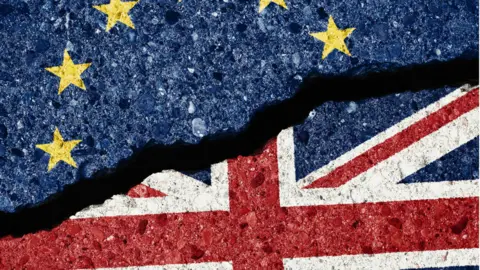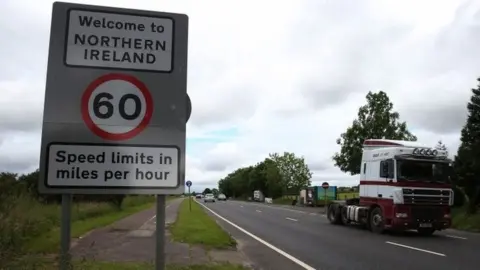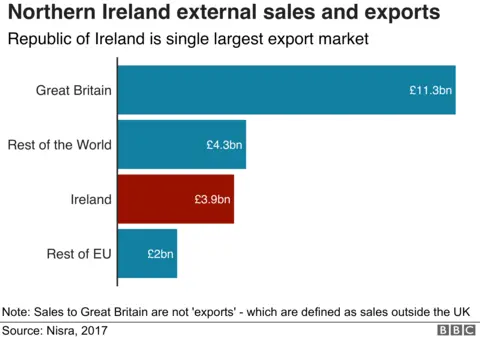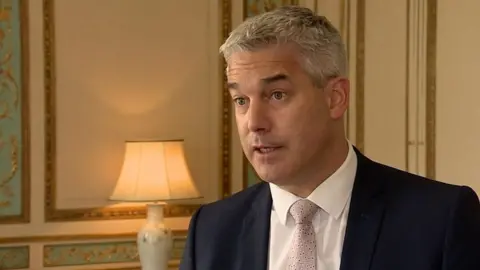Brexit deal 'could reduce spending, investment and trade in NI'
 Getty Images
Getty ImagesA government risk assessment has warned the new Brexit deal could mean a reduction in business investment, consumer spending and trade in NI.
The negative outcomes would come from divergence with the rest of the UK and increased uncertainty.
The Brexit deal would mean NI following many EU rules on goods while the rest of the UK would not.
The assessment says the impacts could be mitigated by government action to support businesses.
It has been published alongside the EU Withdrawal Bill, which MPs are debating on Tuesday.
 PA
PAThe assessment is highly qualified, as no adjustments are made for possible changes in future behaviour by businesses or consumers.
It also does not attempt to quantify the impact of trade facilitations and simplifications that may be negotiated by the EU and UK.
Supporters of the Brexit deal believe it will make Northern Ireland a uniquely attractive destination for foreign direct investment as it will retain privileged access to both the UK and the EU single market.
The risk assessment does not consider that potential benefit.
Checks 'may affect profitability'
The Brexit deal would mean Northern Ireland continuing to align with EU product standards and customs leading to new checks on goods coming into NI from GB.
The risk assessment states: "The costs of new checks and administration associated with the Northern Ireland protocol may affect the profitability of businesses trading to and from NI.
"Due to data limitations around the number and nature of consignments of goods being moved from GB to NI, it is not possible to estimate the associated administrative burden on businesses."


It adds that HM Revenue & Customs has estimated that for trade between the UK and the rest of the world, the administrative cost of customs declarations ranges from £15 to £56 per declaration.
But it cautions that it may not be possible to translate the same estimates to GB to NI trade.
In an evidence session with the Treasury Committee on Tuesday, HMRC said it had not calculated the administrative cost of the government's new Brexit deal for business.
Labour MP Catherine McKinnell, interim chair of the committee, said: "Yet again, there is a void of economic information on the impact of the Withdrawal Agreement Bill.
"It's astonishing the government hasn't analysed the impact of such a monumental piece of legislation."

On Monday, Brexit Secretary Steve Barclay admitted there would also be a new paperwork requirement for goods moving from NI to GB.
The "exit declarations" are a requirement of the EU's customs code.
The risk assessment states that "some practical information will need to be provided electronically on movement of goods" but due to "data limitations" it has not been possible to estimate the associated costs to business.
